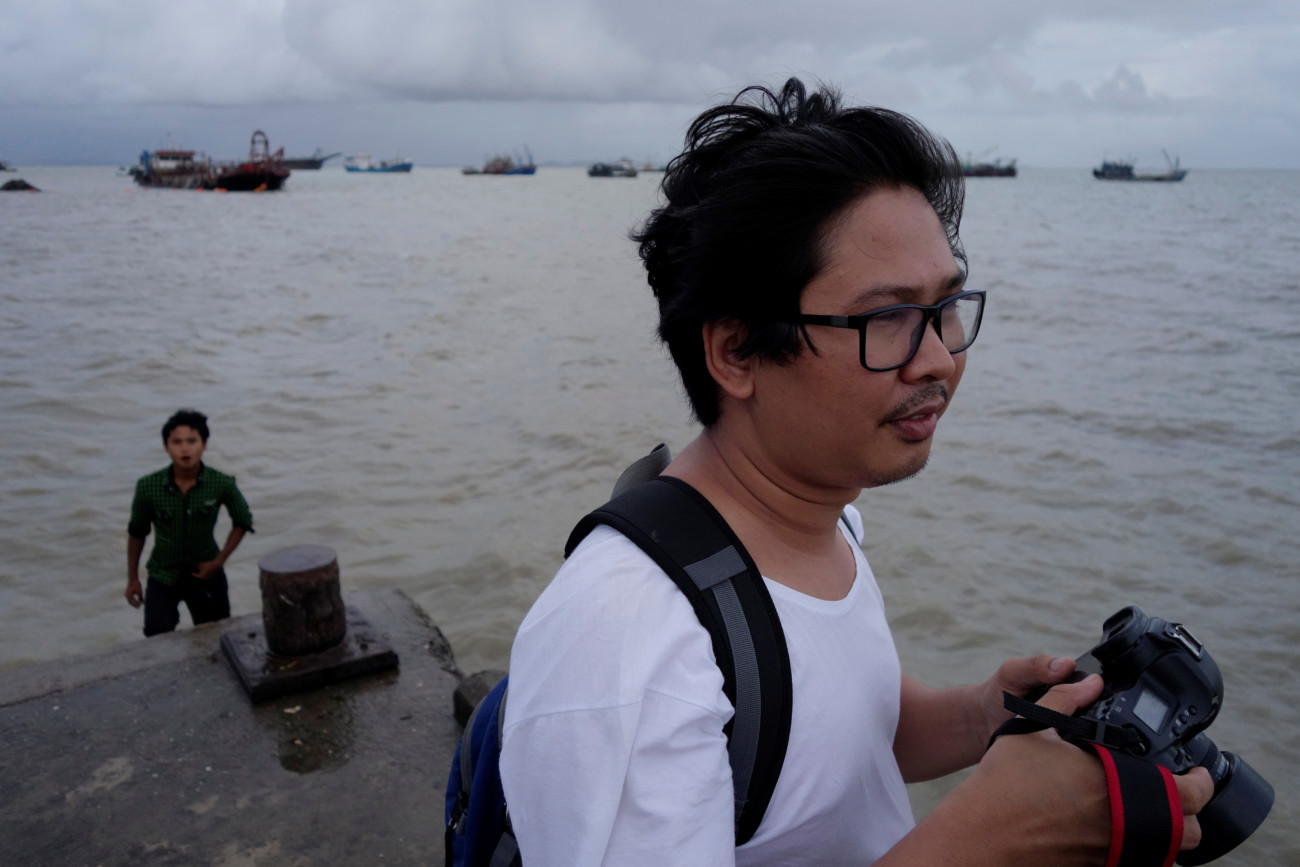Sign up for The Media Today, CJR’s daily newsletter.
Three years ago I was in New York, discussing some news from my homeland. The Wall Street Journal and some local news outlets had just published stories revealing how billions had allegedly been siphoned out of Malaysia’s 1MDB sovereign wealth fund by the country’s leader, Najib Razak. Apparently, the money had been frittered on diamonds, Old Masters paintings, and Manhattan condos.
This, I told my reporter friends, was a huge scoop, rare in a region with tight media controls and a largely pliant press.
But would it make much difference, they asked? I faltered. Probably not.
Indeed, Najib had appeared politically invulnerable until earlier this month when the nation, partly spurred by a collective slow burn over the 1MDB scandal, voted out his ruling party in a stunning electoral upset.
ICYMI: Arrested Myanmar reporters: Two book lovers dedicated to their craft
Save a few exceptions, Southeast Asia has never been known for vibrant journalism. But even with that history as a backdrop, analysts say the last decade has seen an unprecedented rollback of journalistic freedom due to rising authoritarianism and social media’s amplification of hate speech.
“What’s happening in Southeast Asia is a nightmare,” says Steven Butler, Asian program coordinator at the Committee to Protect Journalists.
This week in New York, the Asia Society will bestow Osborn Elliott prize for the best in journalism in Asia to Wa Lone and Kyaw Soe Oo of Reuters, who sadly won’t be there to accept. The Burmese reporters are in jail, facing sentences of up to 14 years for reporting on Myanmar’s military forces and their involvement in the murder of Rohingya Muslims. (Disclosure: I am an Oz prize juror.)
Another Oz prize finalist this year: Rappler journalists Patricia Evangelista and Carlo Rabuco, for their vivid and critical coverage of President Duterte’s bloody drug war in the Philippines. But Rappler is now fighting a variety of legal and regulatory challenges to its very existence. Its reporters, and in particular its founder Maria Ressa, have endured a barrage of threats both online and offline. At at one point, she averaged 90 threats of rape, murder, and bodily harm per hour.
Much of Southeast Asia is young, with a population that depends heavily on their smartphones and social media for the news; Facebook counts Asia as its biggest region in terms of active users.
In response to complaints that its produce is being weaponized by authoritarian regimes, Facebook says it has ramped up regional hires, (the Singapore regional office has posted 160 job openings), disabled millions of fake accounts, and expanded its third-party fact-checking network through a partnership with the Poynter-based International Fact-Checking Network. The IFCN is a coalition of fact-checking teams that flag fake stories that could potentially go viral. Facebook’s algorithm then ensures these stories get shared less, but given the news tsunami, the job can be “like dealing with an ocean with a spoon,” says IFCN director Alexios Mantzarlis.
That spoon can seem positively miniscule in Southeast Asia, where Facebook has just three partners: one in Indonesia and two in the Philippines. It has no partners in Myanmar, for example, where hate speech has helped create a major humanitarian crisis with over 700,000 displaced Rohingya. Facebook also lacks fact checkers in Cambodia, where Prime Minister Hun Sen has launched a searing crackdown on critics ahead of July elections. (“Without doubt, Cambodia’s democracy is now completely dead,” states the Southeast Asian Press Alliance in a recent report.)
If the resources Facebook is throwing at the problem seem small, it still outpaces messaging platform WhatsApp’s efforts.
WhatsApp, acquired by Facebook in 2014, is a souped-up text messaging system. This makes it harder to trace sources of fake news. WhatsApp says it working on improving media literacy among users, including potentially partnering with groups in India and Indonesia. Ultimately, the company claims its small size—about 300 employees in Menlo Park, California—simply does not give it enough resources to deal with these massive global issues.
What next? Malaysia’s now victorious coalition, led by 92-year-old former Prime Minister Mahatir Mohamad, campaigned on the promise of repealing a recently enacted Anti-Fake News Bill, the first of its kind. But it’s unclear if this will happen. Recently, Mahatir appeared to backpedal when he told the Associated Press, “Although we support the concept of press freedom and freedom of speech, these come with limits.”
The bill allows the country to impose heavy fines and jail sentences on violators, and even allows it to go after critics abroad. Edgardo Legaspi, executive director of Southeast Asia Press Alliance, called it “a super weapon to further suppress freedom of expression.”
The country has not had a history of independent press, cautioned Jahabar Sadiq, editor of Malaysian Insider, a web publication that was forced to close after its coverage of the 1MDB scandal. “The default setting in Malaysian media is sycophancy.” He warned, “It’s not so clear where we are headed yet.”
ICYMI: Explosive BuzzFeed scoop raises eyebrows
Has America ever needed a media defender more than now? Help us by joining CJR today.



